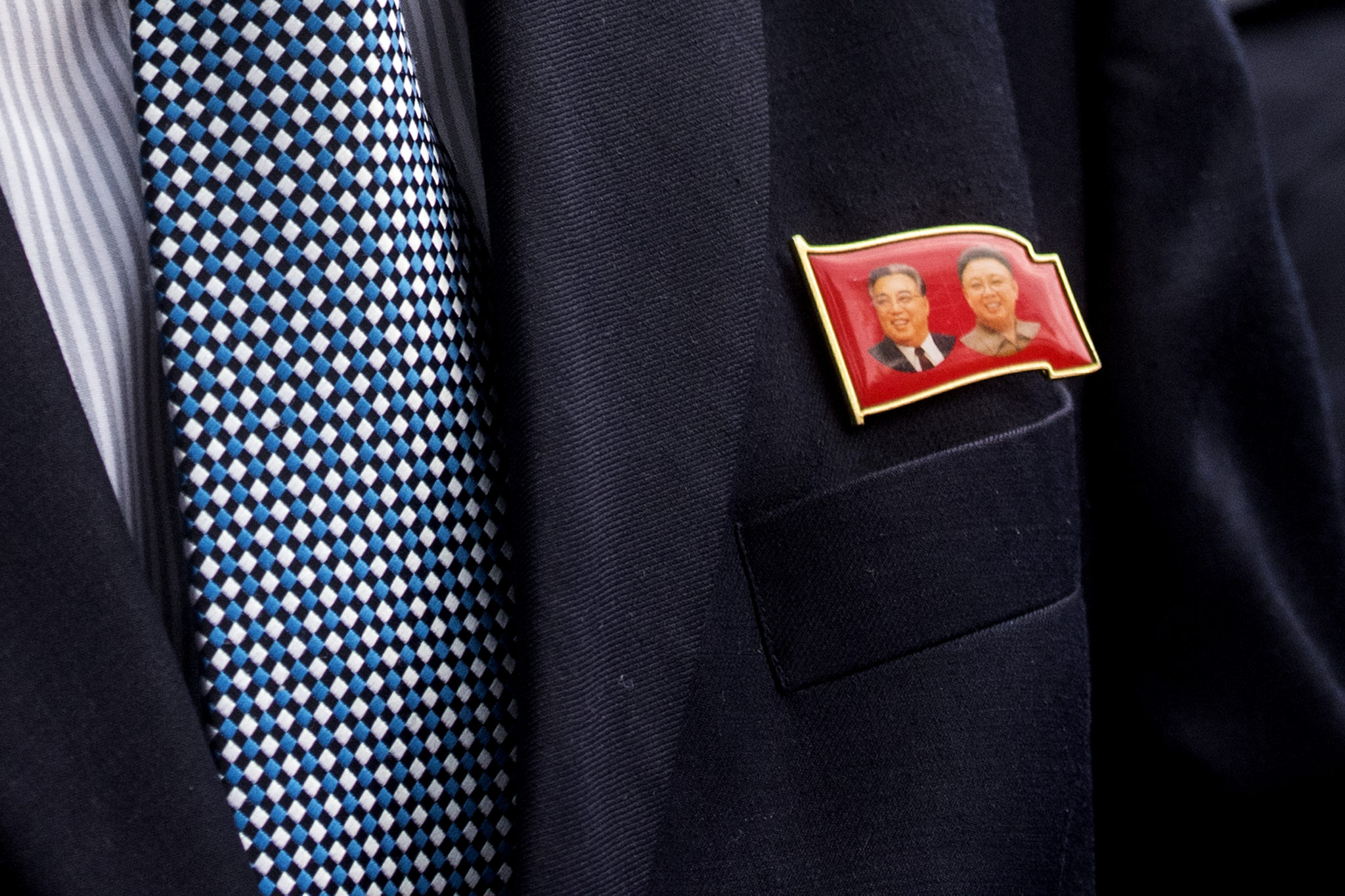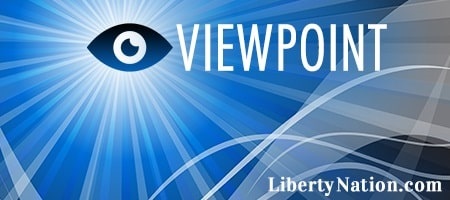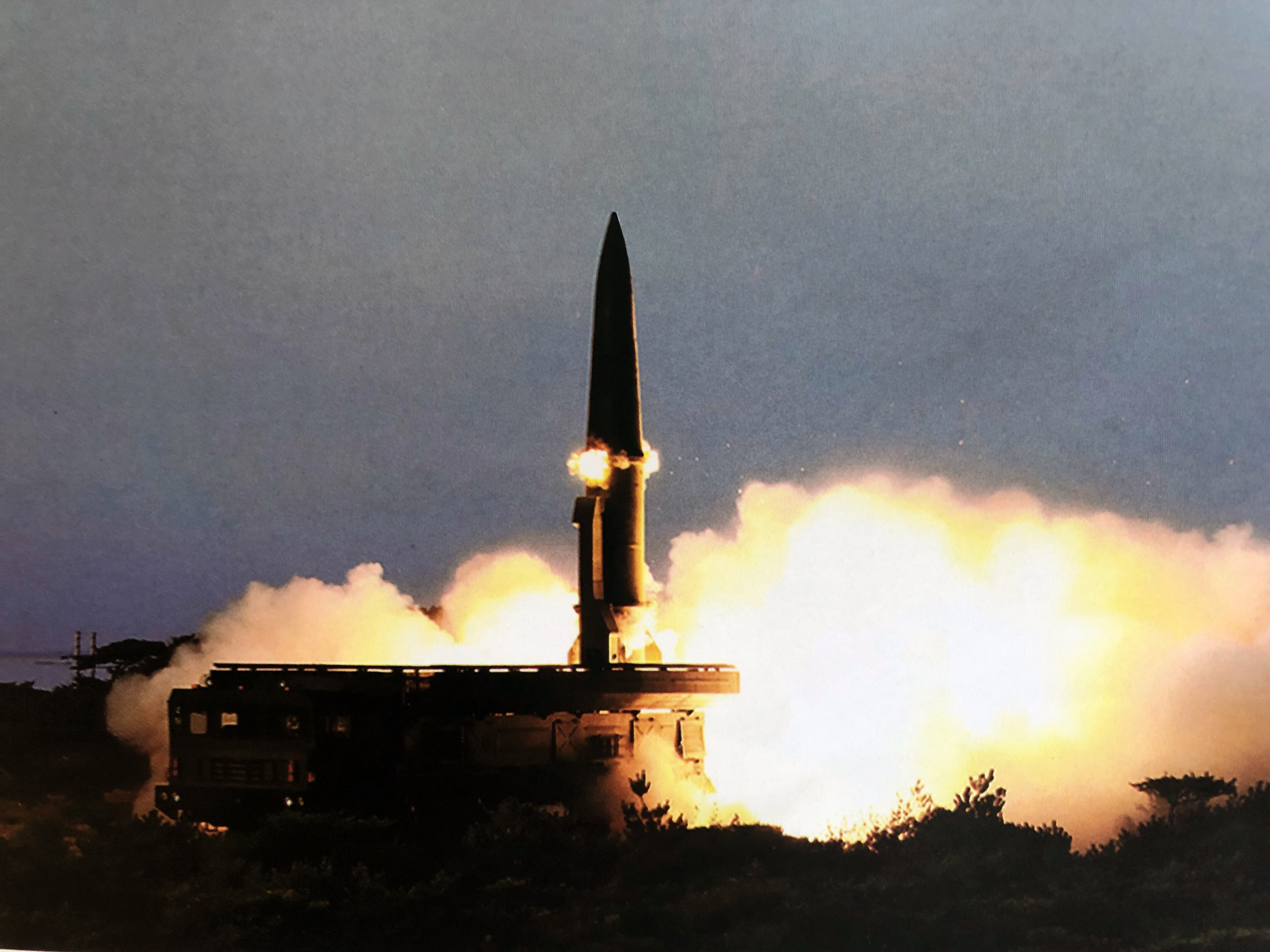How does a country that cannot feed its citizens – one that’s financially hobbled, supposedly, by international economic sanctions – still manage robust nuclear weapons and intercontinental missile development programs? Good question. But the Democratic People’s Republic of Korea (DPRK), North Korea, is managing to pull it off. Liberty Nation has been diligent in reporting on North Korean sword rattling and threats directed at the U.S., South Korea, and its regional neighbors – and we know that sophisticated weapons programs are expensive.

(Photo by Vivian Lo/SOPA Images/LightRocket via Getty Images)
Al Jazeera reports there is a “tense food situation as a result of the coronavirus pandemic and last year’s typhoons which damaged the harvest.” But missile testing continues to go on as Reuters explained, and North Korea could soon develop tactical nuclear capability. All North Korea’s weapons acquisition efforts come with a hefty price tag. So how does the DPRK leader Kim Jong-un’s poverty-stricken country pay the bills? Well, it seems that the globally imposed sanctions have a few loopholes.
Evading Impact
A newly released RAND study reveals that North Korea can engage in costly arms development because the communist country is evading the impact of internationally imposed economic sanctions. The director of the RAND Center for Global Risk and Security, C. King Mallory, has authored “North Korean Sanctions Evasion Techniques,” an in-depth look at how the DPRK is evading the impact of U.N., U.S., and E.U. sanctions, resulting in cash for Kim’s weapons programs. Mallory’s analysis also provides a valuable window into how the money generated by working around the sanctions has serious consequences for the West. Looking first at the lack of tight controls on the international restrictions on Pyongyang the problem becomes clear. While the world was focused on China, Russia, and Afghanistan, sanguine in the belief sanctions imposed on North Korea were doing the job, the world was wrong.
The restrictive measures imposed on the DPRK by the authority of Article 41, Chapter VII of the U.N. Charter fall into four categories:
- Diplomatic sanctions “call for censure or condemnation of North Korea, cancelation of government engagements, and withdrawal of consular personnel.
- Military sanctions prohibit “foreign military assistance to North Korea or by North Korea” with an extensive list of prohibited items, including “know-how relating to nuclear weapons, ballistic missiles, and any related material.”
- Economic sanctions prohibit financial transactions with North Korea that would “limit trade with import and export bans or restrictions” on many products, particularly refined petroleum products, crude oil, and coal.
- Other sanctions include a “global travel ban” and a prohibition on the import of luxury goods.
E.U. and U.S. sanctions comply with and augment the U.N. Security Council sanctions, with America’s being an “exhaustive” list of “targeted individuals and entities.” Unfortunately, the enforcement of the sanctions is only as good as the willingness of the representative nations to apply the restrictions.
 Under the strongest enforcement measures exerted, the Pyongyang government has managed to work around the sanctions efficiently and effectively. According to the RAND analysis, the DPRK evades the global bans using diplomatic cover, “nonofficial cover,” front companies, shell companies and trusted third-country intermediaries.
Under the strongest enforcement measures exerted, the Pyongyang government has managed to work around the sanctions efficiently and effectively. According to the RAND analysis, the DPRK evades the global bans using diplomatic cover, “nonofficial cover,” front companies, shell companies and trusted third-country intermediaries.
Where diplomatic accreditation exists, embassy staff help North Korean companies build business networks and implement security and military cooperation with host countries, circumventing military and economic sanctions. In addition, nonofficial cover involves North Korean workers in foreign countries who, though not enjoying diplomatic immunity as do diplomatic personnel, “play a key role” in sanctions avoidance. Often, the workers are embedded in foreign companies as “medical professionals, IT workers, athletes, ship crews, factory workers, caterers, and manual laborers.”
Shells and Intermediaries
North Korea uses front companies with fully functioning characteristics of legitimate businesses to effectively disguise and obscure illicit activity that generates cash for Kim’s coffers. Shell companies, on the other hand, have no “independent operations, significant assets, ongoing business activities, or employees” and can be no more complex than two people and a fax machine. Yet, like the front company, it allows North Koreans to function outside the country.
The most difficult to ferret out and shut down are the trusted third-party intermediaries because they are foreign nationals who have “wittingly acted as intermediaries for the North Korean sanction activities.” The intermediaries are well compensated, have no incentive to turn their DPRK paymasters in, and are especially useful in countries that “require its citizens to own a majority stake in enterprises.”
As Mallory points out, the revenue-generating activities outside North Korea are essential and effective. Mallory’s analysis reveals:
“North Korea needs to generate this amount to fund the domestic political patronage networks that keep the existing regime in power. It also needs them to pay for North Korea’s nuclear weapons and missile programs that ensure regime survival and provide the regime with greater bargaining leverage versus other countries. Each year, North Korea generates an estimated $100 million of this amount in Africa.”

(Photo by API/Gamma-Rapho via Getty Images)
North Korean activities avoiding the impact of sanctions result in other consequences that should concern America especially. In addition to the danger posed by North Korea’s nuclear and missile program, Mallory explains that the relationships developed through its restriction avoidance methods create a willing market for its arms sales business. Kim’s weapons for cash concessions are especially booming in Africa. As the study describes:
“For North Korea, the need to earn hard currency through weapon sales overrides any concerns for African regional stability. The evidence for this lies in the fact that North Korea continues to supply small arms to African countries despite ongoing instability in large parts of the Sahel fueled by previously supplied North Korean weapons. North Korea is also active in Mozambique and the Democratic Republic of the Congo, where insurgencies are underway.”
North Korea has managed to turn what was supposed to be punishing economic sanctions into a cash cow. As so often is the case, the purpose for which geopolitical initiatives are implemented has an opposite and more perverse result. The RAND report on the sanctions imposed on North Korea is a comprehensive and compelling explanation of this phenomenon. The Biden administration has called North Korea its “top foreign policy issue.” If it is, then it’s time to start using some of that “relentless diplomacy” the President touted so forcefully in his recent U.N. speech. It’s time to close the loopholes in the international sanctions on the Pyongyang government.
The views expressed are those of the author and not of any other affiliation.
~ Read more from Dave Patterson.



